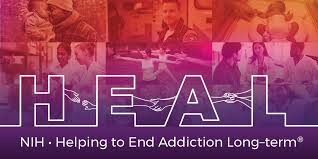
Check out For Grace's November Story of the Month as we take another look at the intersection between chronic pain and social isolation. Stu Smith has been the devoted caregiver for 28 years to his wife, Ellen, who suffers from Ehlers-Danlos Syndrome. As her disease progressed, Stu agonized over their eroding social lives, one rooted in family, church, fitness and more. Miraculously, they found a therapy that improved Ellen's function and have regained much of their social connection, while Stu relishes in the role of "comforting motivator."

For Grace leadership was recently asked to provide feedback on a Stanford University's CHOIR (Collaborative Health Outcomes Information Registry) learning system that helps people with pain share information about how pain affects their lives. With CHOIR, patients fill out questionnaires about their pain, mood and daily functioning and this data is then used by their clinicians to inform individualized care. We applaud Stanford's efforts (in partnership with the NIH) to gain better understanding into the lived experienced to enhanced care outcomes.

Everyone loves a comeback story - and so it is at For Grace as we start seeking new submissions for our Share Your Story Project's 2026 theme. We all know the tales of how high-impact chronic pain can derail a life, turning it upside down and inside out. But what about those stories where someone has pulled up their bootstraps, dusted themselves off and moved on to a thriving new life, with or without better wellness? If you have a comeback story of redemption and renewal from the dregs of chronic pain, please link here to find out how to submit.

For Grace Director John Garrett has been invited to join an NIH HEAL ("Helping to End Addiction Long-Term") Initiative panel to give a caregiver's perspective on upcoming clinical trials in pain research. The panel is seeking PWLE individuals ("People With Lived Experience") and Garrett, a 43-year caregiver of a person with high-impact pain, is well suited to contribute as an advisor to this important effort to improve research and care. The NIH HEAL Initiative aims to speed scientific solutions to the opioid epidemic and the crisis of chronic pain.
